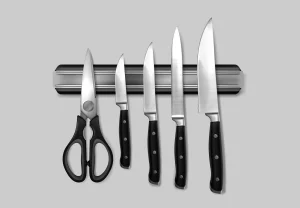Maintaining a healthy lifestyle is essential for preventing various diseases, and diet plays a crucial role in this process. A low-fat, low-cholesterol diet is one of the most effective strategies for caring for cardiovascular health and keeping cholesterol levels in check. These diets not only contribute to improving quality of life but also help reduce the risk of chronic diseases such as hypertension and diabetes.
By following this diet, we are not only protecting our hearts but also promoting a healthier and more balanced lifestyle. As someone who values health, I can confidently say that adopting this type of diet is one of the best decisions you can make to ensure a healthy future.
Benefits of Following a Low Fat, Low Cholesterol Diet
A low-fat, low-cholesterol diet offers multiple benefits that go beyond simply lowering cholesterol. First, it helps reduce the amount of saturated fat and cholesterol in the blood, which decreases the risk of developing plaques in the arteries—a key factor in preventing heart disease. Additionally, this type of diet contributes to maintaining a healthy weight, as the food choices tend to be lower in calories and richer in nutrients.
Another significant benefit is the improvement in energy levels. By focusing on whole, healthy foods, the body receives the nutrients it needs to function optimally, leading to greater vitality and a better mood. Finally, adopting a low-fat, low-cholesterol diet can also help prevent other chronic diseases, such as cancer and type 2 diabetes, by encouraging a balanced consumption of foods and eliminating those that are harmful to health.
Recommended Foods in a Low Fat, Low Cholesterol Diet
To maintain a healthy heart and optimal cholesterol levels, it is essential to include a variety of healthy foods in our diet that provide the necessary nutrients without adding unhealthy fats or cholesterol.
Healthy fats and their sources
While the idea is to reduce fat intake, it’s important to note that not all fats are harmful. Unsaturated fats, found in foods like avocados, nuts, seeds, and olive oil, are essential for health. These fats help reduce LDL cholesterol (the “bad” kind) and increase HDL (the “good” kind), thus improving cardiovascular health.
Fruits and vegetables
These foods should be the foundation of any healthy diet. They are rich in fiber, antioxidants, and essential nutrients that help reduce cholesterol levels and promote overall health. Fruits such as apples, pears, and citrus, along with leafy green vegetables like spinach and kale, are especially beneficial.
Lean proteins
Choosing low-fat proteins is key. Fish, especially those rich in omega-3 fatty acids like salmon and mackerel, is an excellent option. Skinless poultry, egg whites, and plant-based protein sources like legumes and tofu are also good choices.
Whole grains
Whole grains like oats, quinoa, and brown rice are high in soluble fiber, which helps reduce the absorption of cholesterol into the bloodstream. Incorporating these foods into daily meals can be very helpful in keeping cholesterol levels under control.
Foods to Avoid to Control Cholesterol
Just as it is important to know which foods to include, it is also crucial to be aware of those we should avoid to maintain a low-fat, low-cholesterol diet.
Saturated and trans fats
These are the main culprits when it comes to high cholesterol. Saturated fats are found in animal products such as red meats and full-fat dairy products, while trans fats are present in many processed foods, such as margarine and commercial baked goods. Reducing or eliminating these foods is crucial for keeping cholesterol under control.
Full-fat dairy products
Although dairy products are a good source of calcium and protein, full-fat versions contain a significant amount of saturated fat. Opting for low-fat or fat-free versions can help reduce saturated fat intake without sacrificing nutritional value.
Processed meats
Sausages, bacon, and other processed meats are usually high in saturated fats and sodium, both factors that contribute to increased cholesterol and blood pressure. It is advisable to replace them with healthier options, such as fresh lean meats or plant-based proteins.
Practical Tips for Adopting a Low Fat, Low Cholesterol Diet
Adopting a low-fat, low-cholesterol diet may seem challenging at first, but with some practical tips, it is possible to make the transition effectively.
Meal planning
Good planning is key to avoiding the temptation to eat unhealthy foods. Dedicating time to plan weekly meals, making a shopping list with allowed foods, and preparing meals at home are strategies that make it easier to stick to the diet.
Reading nutrition labels
Nutrition labels are our allies when it comes to identifying low-fat and low-cholesterol foods. It’s important to learn how to read them and understand what to look for: low in saturated fats, free of trans fats, and less than 300 mg of cholesterol per day.
Eating out
When dining out, it’s essential to be selective with menus. Opt for grilled dishes instead of fried ones, ask for dressings and sauces on the side, and choose smaller portions as effective ways to maintain the diet even when eating out.
Examples of Healthy Meals for a Low Fat, Low Cholesterol Diet
Here are some meal ideas that are both delicious and beneficial for maintaining a low-fat, low-cholesterol diet.
- Breakfast: Cooked oatmeal with apple slices and a tablespoon of chopped nuts, served with skim milk.
- Lunch: Spinach salad with avocado, tomatoes, chickpeas, and a light dressing of olive oil and lemon.
- Dinner: Grilled salmon with a side of quinoa and steamed broccoli.
- Snacks: Fresh fruits, baby carrots, or a handful of almonds.
These options are not only low in fats and cholesterol but also provide a wide range of essential nutrients to keep the body healthy and energetic.
How a Low Fat, Low Cholesterol Diet Contributes to a Healthy Lifestyle
Incorporating a low-fat, low-cholesterol diet is not just a preventive measure against diseases; it is also a step towards a more balanced and healthy lifestyle. This type of diet helps us feel better both physically and mentally by reducing the risk of chronic diseases and improving our daily energy levels.
Moreover, when we adopt healthy eating habits, we also promote good habits in those around us, creating a healthier environment for everyone. From personal experience, I can affirm that a low-fat, low-cholesterol diet is a powerful tool to keep ourselves in the best possible health.
Conclusion
Opting for a low-fat, low-cholesterol diet is one of the best decisions we can make to protect our long-term health. Not only are we preventing heart disease and other serious conditions, but we are also ensuring a lifestyle full of energy and well-being.
At the end of the day, taking care of our health is an act of self-love and responsibility toward those around us. Adopting this type of diet is a commitment to our present and future well-being, as well as that of those we care about. Start making healthier choices today, and you’ll see how your life transforms for the better!





